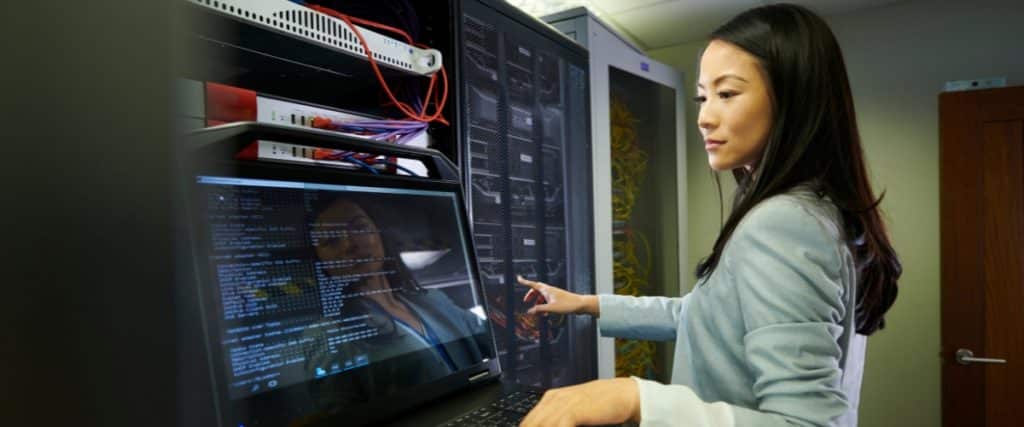2022 observed the introduction of many monumental technological solutions in cryptocurrency, medical robotics, the Metaverse, and much more. Stay informed on the top technology trends in 2023 to watch for innovation and growth.
The continued technological uprising has disrupted the global market, bringing a revolutionary shift to the way we do business. Over the past pandemic-influenced years, the technology landscape witnessed incredible market volatility, prompting the next wave of digital adoption. Many tech companies have redirected their efforts to build viability and adaptability, while strengthening their resilience. In 2022, most companies pivoted towards integrating blockchain technologies, and artificial intelligence (AI), along with other modern solutions, into their business models and offerings.
However, entering the new-tech era has never been more challenging, especially with new inventions arising every day.

To survive such turbulent times, businesses need to show great adeptness in staying ahead of market trends. To facilitate their digital transformation, companies are increasingly leveraging new technologies, while improving their existing infrastructures.
Moreover, consumers have come to value high levels of transparency and commitment towards sustainable objectives. New technology trends within the business ecosystem now tap into these values, opening the way for impact-focused entrepreneurs and companies to pioneer forward-thinking solutions.
Keep an eye on these disruptive trends in 2023, and read on to learn more about what comes next for the tech world.

AI-Enabled Cybersecurity
Despite being around for quite some time, cybersecurity is a fast-evolving market. Part of what contributes to the constant advancement of cybersecurity is the fact that cyber threats are also evolving. Cybersecurity professionals continue to create barriers, adopting new technology to enhance data security and safety, as many businesses lean towards AI cyber solutions to better protect their organisations.
By 2025, over 60% of digital companies will integrate cybersecurity risk management services into their operations. AI will lead the way to fortify these corporations’ security wall, and solve other related challenges by utilising big data and machine learning to solve security challenges.
iLog.AI is an AI-based cybersecurity platform in Thailand whose all-in-one solution covers personal data protection, cyberthreats, and privacy, in compliance with the Computer Crimes Act.

Cybersecurity continues to remain a top concern for both businesses and individuals, which will further prompt the growth of innovative solutions.
Metaverse and Web3
Metaverse’s adoption rates will continue to grow into 2023, showing substantial potential in the corporate world.
In 2022, the market size for the Metaverse was valued at US$100.27 billion, foreseeing a compound annual growth rate of 39.8% by 2030. This works in correlation with the growth of decentralised iteration of the internet, Web3.
The two soaring technologies are set to transform human interaction and enhance digital experience, leveraging augmented reality (AR), AI, virtual reality (VR), Internet of Things (IoT), and blockchain to further build a more connected world. Organisations have shown great interest in the Metaverse, and will continue to build on its ecosystem to strengthen their marketing capabilities, improve connectivity and consumer engagement, and aid business innovation.
Capitalising on this trend, Hong Kong-based fine arts agency ArtistsVerse fosters a community of diverse NFT and digital creators, offering them a platform to showcase their creative works. With its AR and VR assemblies, the tech company aims to deliver a seamlessly immersive experience, riding the next wave of digital art.

Superapps
In the age of convenience, the number of tech-enabled solutions simplifying and sustaining digital transactions has rapidly increased. Superapps are a one-stop destination for all diverse needs, designed to allow users to complete different tasks seamlessly through a single application.
By 2027, over 50% of the global population will be daily active users of superapps. The term’s first appearance in Asia began with one of the biggest Chinese applications in the world, “WeChat,” which encompasses several uses in one, ranging from payments, e-commerce, social media, and its primary function- messaging.
While the trend is still emerging in APAC, due to pre-set regulatory frameworks and stringent approval systems, many large-scale companies have begun to shift their focus to superapps. Among these names is Singapore’s leading multi-technology company, Grab, which started out as a ride-hailing service, only to expand its vertical offerings. Grab is now one of Southeast Asia’s dominating superapps, offering customers everyday services including, mobility, deliveries, along with digital payments through GrabPay.

Robotic Process Automation
While scepticism around automation remains, Robotic Process Automation (RPA) is another growing technology trend that digitises operations. The market has shown great potential over the past years, and is expected to reach a valuation of over US$10 billion by 2023.
RPA helps reduce the need for people to handle menial and repetitive processes to facilitate and accelerate output, such as daily transactions, or sorting big data. Such automation technologies can even handle as small of a task as replying to an email. RPA’s intelligent automation is designed to drive workflow, further enable productivity, and prevent human errors, and machine downtime.

Sustainable Technology
Despite ongoing technological advancements and various global pledges put in place to tackle climate change, sustainability commitments in businesses are still not as transparent. As part of the planet’s collective motto for 2023, greener digital innovation is inevitable. Environmental, Social, and Governance (ESG) goals have now become a greater priority of most companies, hence, many are rushing to meet with intended targets.
The adoption of sustainable technology will increase energy efficiency and lower expenses, while accelerating the flow of capital being invested in renewable technologies. This will further break down objectives for companies looking to reduce their carbon footprint by controlling their emissions, waste reduction, transitioning to green energies, and more with the help of AI technology, analytics, and cloud computing.
Sustainable Lab Inc. is a Japanese FinTech company pioneering in data sciences to build a greener economy. The sustainability catalyst leverages big data to break down non-financial, ESG, and Sustainable Development Goals for social-minded businesses, to help them align with their commitments, and facilitate a greener transformation. Such advancement in technology is of paramount importance if we are to build a sustainable future.

There is no limit to the capabilities of innovation in technology, and these trends will not only continue to grow in popularity, but will also further develop over time to cater to and add value to people and industries across all walks of life.
Related Articles
Into the Metaverse: 5 Emerging Industry Trends in 2022
One App to Rule Them All: What is a Superapp?
How Blockchain Technology is Revolutionising APAC’s Gaming Industry





